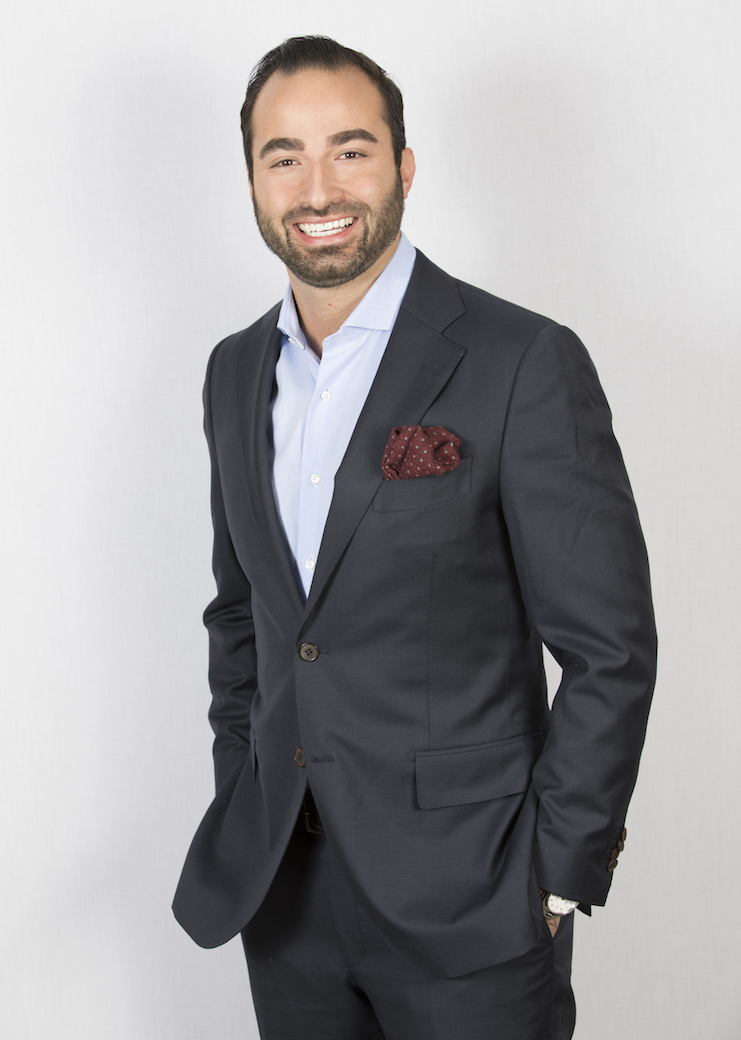 Following the announcement that he had been named president of Meyer Jabara Hotels (MJH), Justin Jabara spoke to LODGING about what it means to be a third-generation hotelier taking the helm of the hotel ownership and management company his father, Richard Jabara, and Richard’s partner William Meyer—themselves second-generation hoteliers—co-founded 43 years ago. He also weighed in on how the industry—and MJH along with it—has changed, and what it takes to maintain an edge in this dramatically different landscape.
Following the announcement that he had been named president of Meyer Jabara Hotels (MJH), Justin Jabara spoke to LODGING about what it means to be a third-generation hotelier taking the helm of the hotel ownership and management company his father, Richard Jabara, and Richard’s partner William Meyer—themselves second-generation hoteliers—co-founded 43 years ago. He also weighed in on how the industry—and MJH along with it—has changed, and what it takes to maintain an edge in this dramatically different landscape.
What was your path to your current position?
I’ve been working with the company since 2005, but pretty much grew up around our hotels. Because our portfolio was still centralized in the Northeast when I was very young, many of our vacations consisted of a drive to a hotel in the area. While my father was in meetings, I would hang out at the front desk or kitchen, or, at a Holiday Inn that had a Teddy’s Lounge—named after my grandfather—I’d sit with the DJ during happy hours while Dad took care of business.
By age 16 though, I was working during school vacations—waiting tables, delivering room service, and working as a banquet prep cook at the Christiana Hilton in Delaware. Then while in college, I structured my courses to work fulltime at the Providence Marriott in a variety of roles while earning a degree in hotel management from Johnson & Wales University in Providence, R.I.
After college, I took on more senior-level exposure, operating hotels, F&B, catering—you name it. I went wherever I was needed in the portfolio, knowing that there were a lot of eyes on me because my last name was Jabara.
Then, six years ago, I made the move to the other side of the business, becoming vice president of development and acquisitions. With Bill Meyer as my mentor, I had the opportunity to lead portfolio growth, form new partnerships, and establish creative joint ventures.
Why was now the right time for you to step up to this new role?
This was an internal decision; the timing was correct within our organization for me to take on an even larger role in achieving our vision, including increased involvement in our portfolio as well as expansion of the portfolio and forming new partnerships. It’s part of a strategic shift to ensure that our company is positioned to continue its best-in-class operations. This shift includes the recent rollout of two of many new initiatives—a vibrant new e-commerce team and a new regional sales team that will provide support for all general managers.
“No matter what the challenges are, great partnerships are the most important thing of all.”
Richard and Bill felt I was the right person to lead the company through this progression and change while not losing sight of our foundational principles. This means never forgetting that we have been, and always will be, in the people business. The better the people, the better the business. I learned from my father and grandfather and their partners—Bill and his father—that all partnerships must be win-win. These partnerships include financial partners, employees, and our guests, so we strive to create great success for them all. We can’t forget that people are our most important asset; it’s in the DNA of the company, which is supported by our culture.
What is your view of changes in the industry, including your own portfolio, and what are your thoughts about what’s ahead in 2020?
From when I got my first taste of the industry as a child to now—and I’m only 32—the industry is 100 percent different—the brands, the markets we’re in, the makeup of our assets, and who our partners are. Like others, we’ve had to adapt to continue to be successful. I think most in our industry would agree that we are now likely somewhere near the top or a little on the way down in the cycle, but these are still good times, and MJH continues to grow.
We do have challenges—the cost of doing business is outpacing revenue growth in many markets—and so we need to be more diligent as operators. The level of competition is unprecedented in terms of the number of brands; we are truly in uncharted territory.
Yet, the lesson I learned from Bill and Richard and their fathers is that no matter what the challenges are, great partnerships are the most important thing of all.











